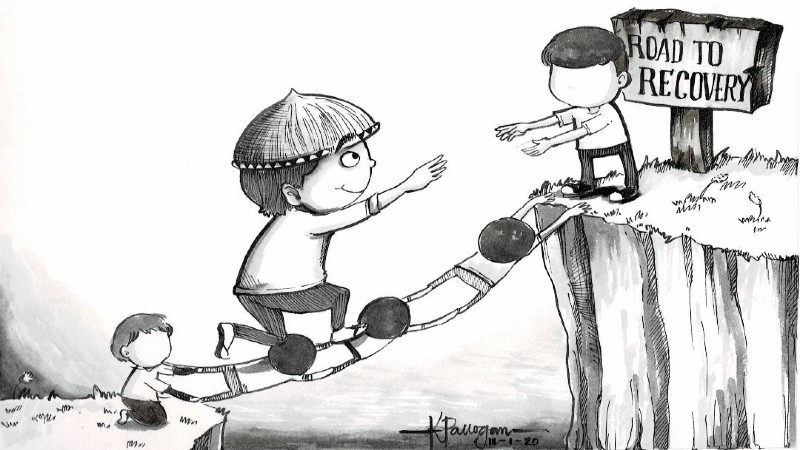The Corona Virus Disease (COVID) 2019 global pandemic practically changed the economic, political, socio-cultural and thrusts of all countries in the world placing the world economy on a standstill. The deadly virus came to the world like a raging bull that caught everyone flat-footed. Even developed countries and world powers were not spared from the unabated increase in the number of cases that are being recorded in almost every country daily with second waves being reported.
No one has been spared from this health crisis and every measure that had been taken by the developed and developing countries had obviously been one of trial and error, one of the age-old planning and development principles.
Evidently, there were many gaps in the implementation of prevention, detection, testing and tracing, isolation and quarantine and re-integration of the patients. The gaps range from poor planning, wrongly calculated execution of programs and projects, inadequate monitoring mechanisms, lack of resources, among others, that contributed to the rapid spread of the virus.
In the country, the timely organization of task forces and the designation of point persons in charge of the whole-of-government and whole-of-society approach in abating the spread of the virus proved to be instrumental in significantly reducing the number of cases as interventions have been well planned and executed by the concerned implementers.
Many experts claim the Philippines is now slowly flattening the COVID-19 epidemic curve but some of them are claiming otherwise because of the sudden surge in cases from other parts of the country that had not been previously considered as high risk areas but now exhibiting local and community transmission of the virus.
Currently, the race is on for the vaccines against the virus but the conduct of the required researches among other related studies before the discovery of a potent vaccine will take some time. Many experts believe there will only be available vaccines against the virus by the first quarter of next year. However, this awaited vaccine will not surely be the magic pill against the virus as it will take some time to be made available widely.
Let us put our guard down. The solution should start from ourselves before extending to our communities. Much had been said about the established health and safety protocols such as the mandatory wearing of face masks, the observance of physical distancing, the regular practice of proper hygiene, and healthy lifestyle and diet, as practical preventive measure to avoid contracting the virus. What is important for us to remember is for us to take care of ourselves and by doing so, we are actually taking care of the health and safety of others because we will not contract and spread the virus in our families and communities. Additionally, we contribute to efforts not to overwhelm our health care system.
As earlier stated, no one expected the magnitude of the effect of the virus to our lives. We cannot rely on government aid forever. It is high time for us to start somewhere. The implementation of the prevailing community quarantine guidelines allowed us to slowdown our daily routine. Worst, many of our people lost their jobs and sources of livelihood that caused them to suffer, including from mental health issues, some of whom took their lives due to severe depression.
Let us not allow the prevailing difficult situation to take away the best from us. Let us instead make the community quarantine as our motivation to strive for the best in our lives by being able to hurdle the difficulties we are facing. Foremost among our needs is food. While it is true that many formal jobs are no longer available in the market, there are other innovations, like online selling, that could be done for us to survive the wrath of the ongoing health pandemic which may be extending to two to three years depending on how efforts to find a vaccine goes.
Although we have individually and collectively as citizens responded to the effect of the pandemic, what is needed is support from government for people at the fringes. For instance, there should be no taxes on online selling for small producers. Instead, government just have to ensure the goods being sold are quality and safe products. Local governments should create social enterprises where the laid-off workers and other jobless individuals can make themselves productive and earn income. The government must provide the linkages among small producers to meet market needs. Local governments must survey and make feasibility studies on possible social enterprises that can be set up in the communities. It is amazing how individuals and families have embraced home gardening, whether in urban or rural areas, to meet some of their food needs, and even have some to spare for their neighbours and market. These people have created online groups for exchange of ideas, products, and linkages. Seemingly, resilience is built in small packages, in the capacity of people to innovate in order to survive, and in the solidarity built amongst peoples and communities. There are good practices that can be culled from these coping efforts of people in response to the effects of this pandemic. It is up to the authorities to sum these up and make them the new normal.














